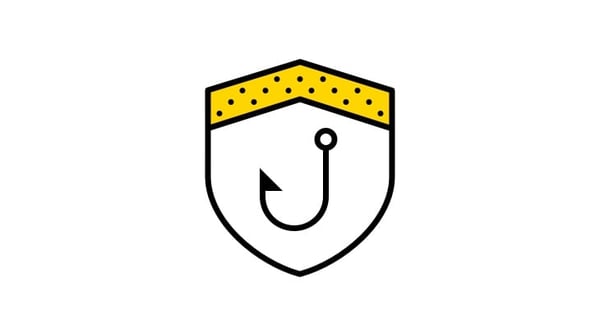
Phishing, Vishing and Smishing
Phishing
What is Phishing?
Phishing is a way scammers try to steal your personal information, passwords and banking/credit card details by the use of fake email messages or websites.
It works by sending messages that pretend to be from a known company or website.
The message will usually contain a link that sends you to a fake website that looks like the real thing.
What we will never do
Legal & General will never send emails to you that ask for confidential or security information.
If you receive such an email you should delete it immediately without responding and report it to us straightaway.
How to contact us
If you think you have given out personal or security information contact us at FC@lgim.com
What to look out for
Domain Name
Checking the website address to see if it matches the site that its claiming to be.
Look for spelling mistakes and bad grammar
Are capitals used correctly? Is there a mix of US English and UK English? Carefully check the spelling of links and websites.
Always use a Virtual Private Network (VPN) when connecting to public wi-fi.
Check who the email is addressed to
We will always use your name and never write to you using ‘customer’, ‘client’ or ‘account holder’.
Always
If you are unsure about an email that’s asking you to do something. Login to the known website to check if there are any actions for you to take.
Take Extra care
Is it asking you to take urgent action or respond quickly? If so, it's likely that this is not from a legitimate source; take additional care and follow the above steps to confirm the legitimacy of the sender before responding or taking action.

Vishing
What is Vishing?
Vishing is a way scammers try to steal your personal information, passwords and banking/credit card details by the use of fake phone calls and voicemail messages.
Scammers may call you or leave you voicemails that pretend to be from a known company.
This is to fool you into giving them your personal and private information.
What we will never do
Legal and General will never cold call you. We will only phone you when there is a need to. Such as:
- if you have asked us to make a policy change
- if we need further information for an application
- or if we have received a complaint from you.
If you are unsure about any call from Legal & General you should report it to us straightaway.
How to contact us
If you think you have given out personal or security information contact us at FC@lgim.com
What to look out for
A call when you aren’t expecting it
Legal & General will never cold call you and we would never ask for personal or banking/credit card information.
Urgency & pushiness
- An unusual sense of urgency such as ‘you must act now’ is a warning sign of a hacking attempt.
- Never give out any personal details to someone you are unsure about or who makes you feel uncomfortable.
If in doubt contact us directly by searching for our contact details yourself.
Options to press numbers to be connected
Never press the number. If in doubt, contact us directly.
Always
Contact us first if you're not sure. Use the contact details above.

Smishing
What is Smishing?
Smishing is a way scammers try to steal your personal information, passwords and banking/credit card details by the use of fake text (SMS) messages. Or text messages sent using your phone apps.
These messages may have malicious links included or even attachments with malware (malicious software).
If opened, these attachments could be harmful to your phone and may also get access to any personal data stored on your phone.
What we will never do
Legal & General will always personalise our messages to you, we will never send a message to you using "Customer", "Client" or "Account holder" as a means of addressing you.
If you receive such a message you should delete it immediately without:
- responding
- clicking on any links
- or opening any attachments.
And report it to us straightaway.
How to contact us
If you think you have given out personal or security information contact us at FC@lgim.com
What to look out for
Legal & General will always use your name
And the content of the message will be something you already know about.
Urgency & pushiness
An unusual sense of urgency such as ‘you must act now’ is a warning sign of a hacking attempt.
Strange links
Do not click links where you cannot see the full web address. If you’re unsure, don’t click and contact us.
Look for spelling mistakes and bad grammar
Are capitals used correctly? Is there a mix of US English and UK English? Carefully check the spelling of links and websites.
Always
Contact us first if you're not sure. Use the contact details above.

Report a scam
Something phishy going on?
If you’ve seen, read or heard anything from Legal & General that you think may be fake or a scam, you can report it to the FCA or Contact us

More help & support

Be ready, be wary
Find out how to protect yourself from scammers.
Other financial scams

Investment scams
Don't lose your lifetime’s savings to an online thief.

Insurance and protection scams
Fake insurance companies and how to spot them.

Equity release (Lifetime Mortgage) scams
Is equity release a scam?